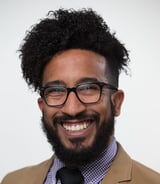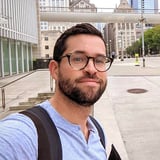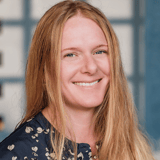Summary
The talk opens by reflecting on the growing community of researchers eager to learn and transform together, a theme initiated by Chris and Jim last year. It emphasizes that transformation becomes most vivid in moments of significant disruption, whether personally, organizationally, or industry-wide, such as the current economic challenges in tech. Lesan’s story about leaving research raises questions about whether organizations are prepared to evolve. Upcoming talks by Mia, Cassini, my Ed, and Caitlin will delve into responsible, radical, and inclusive research to push the craft’s boundaries. Chloe and Florence address cultural intersections and speculative futures, illustrating how transformation occurs through dialogue when diverse groups meet and bend new paths together. The speaker urges participants not only to absorb knowledge but to embrace transformation as a way of life, blending personal growth with professional evolution for deeper, sustained impact.
Key Insights
-
•
Transformation in research is heightened during periods of personal, organizational, or industry upheaval.
-
•
Lesan’s departure from research highlights the tension between individual change and organizational willingness to adapt.
-
•
Responsible, radical, and inclusive research approaches represent deeper transformations of the research craft.
-
•
Conversation between different groups fosters transformation by creating paths neither party would take alone.
-
•
Cultural and futurist perspectives, like Chloe’s and Florence’s, expand the ways transformation is understood and practiced.
-
•
Practicing transformation in life makes it easier and more authentic to integrate it into research work.
-
•
Transformation is not only a goal but a continuous process of bending and turning with difference.
-
•
Engagement beyond passive listening—such as interactive conversations in cohorts and Slack—amplifies transformation.
-
•
Transformation involves openness to new ways of being, knowing, doing, working, living, and breathing.
-
•
Taking notes or sketching ideas is encouraged but openness to the experience and challenge is paramount.
Notable Quotes
"Transformation research is a transformative force."
"In times of great upheaval, possibilities for transformation become more alive."
"Lesan left research and what the organization chooses to do next is up to them."
"Conversation converts — with or alongside, it means bend or turn."
"When difference comes together, something new emerges neither could have traveled alone."
"If we practice transformation as a way of life, it’s easier to practice it in our research work."
"It’s so much harder to not practice transformation outside and then suddenly switch gears at work."
"Open yourself up to the ways of being, knowing, doing, working, living, and breathing of others."
"We’re going to laugh, learn, listen, and maybe take some sketch notes."
"I hope that today you are transformed."
Or choose a question:
















More Videos

"I’ve nearly bought products in my sleep because I memorized the key presses from consistent checkout flows."
Sam ProulxOnline Shopping: Designing an Accessible Experience
June 7, 2023

"We’ve had to retire the studio development category because it wasn’t prioritized due to project work demands."
Ignacio MartinezFair and Effective Designer Evaluation
September 25, 2024

"We needed to revise our plan; we couldn’t just keep adding talented folks and hope everything falls into place."
Sarah Kinkade Mariana Ortiz-ReyesDesign Management Models in the Face of Transformation
June 8, 2022

"The Shakers’ principled approach to design was a precursor to Bauhaus’s form follows function and today’s user-centered values."
Daniel GloydWarming the User Experience: Lessons from America's first and most radical human-centered designers
May 9, 2024

"AI systems can present speculative connections as established facts, so confidence ratings are critical."
Patrick BoehlerFishing for Real Needs: Reimagining Journalism Needs with AI
June 10, 2025

"Providing stakeholders with real user voices alongside insights is key to internalizing and acting on research."
Andy Barraclough Betsy NelsonFrom Costly Complexity to Efficient Insights: Why UX Teams Are Switching To Voxpopme
September 23, 2024

"Design ethics can impact some harms of new technology but not all."
Alexandra SchmidtWhy Ethics Can't Save Tech
November 18, 2022

"The greatest sin of the designer is to say I have the answers and no one else is allowed to have them."
Louis RosenfeldDiscussion: What Operations can teach DesignOps
November 6, 2017

"Every decision in a design system is like a puzzle piece; together they form a bigger picture that evolves over time."
Mitchell BernsteinOrganizing Chaos: How IBM is Defining Design Systems with Sketch for an Ever-Changing AI Landscape
September 29, 2021
















